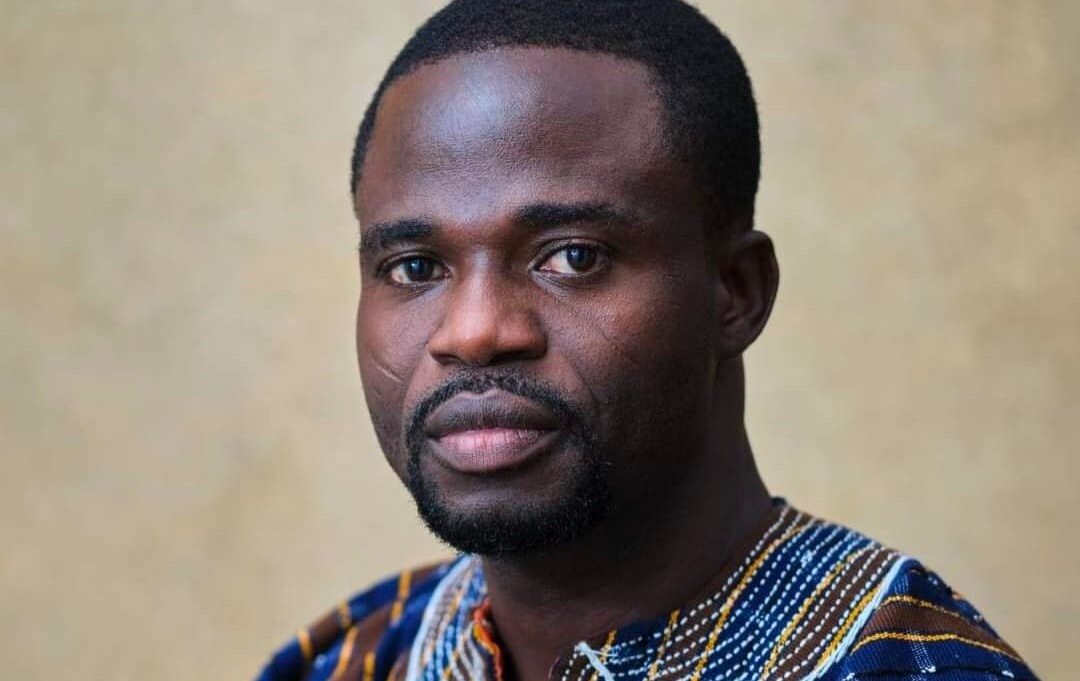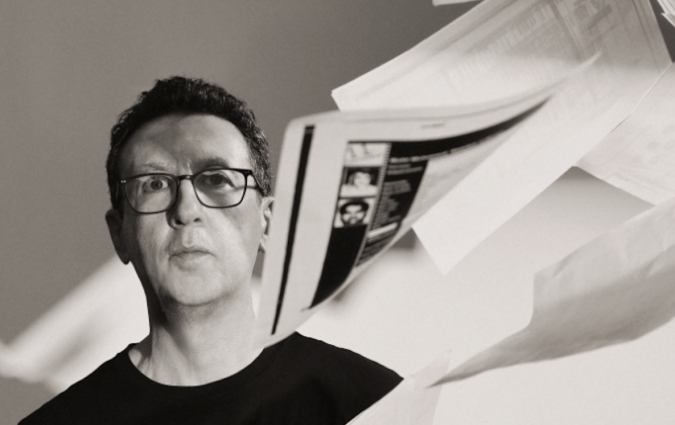“African media houses must do more investigative reporting to stay relevant”

Ghanaian journalist Manasseh Azure Awuni.
Manasseh Azure Awuni is the editor-in-chief of The Fourth Estate, a non-profit, public-interest, investigative journalism project of the Media Foundation for West Africa. Since its launch in 2021, The Fourth Estate has produced in-depth investigations exposing corruption in Ghana. The goal of the project is to promote independent and critical research-based journalism that holds those in power to account.
Awuni is one of the pioneers of innovative investigative journalism in Ghana. He has won or been nominated for many journalism prizes. He was recently adjudged the overall best African Investigative Journalist at the 2023 Norbert Zongo African Prize for Investigative Journalism. From August 2022 he’s taken a break from his job to spend a year at Harvard as a Nieman Fellow, where his focus is learning how to build sustainable nonprofit newsrooms in his region.
In this interview, Awuni discusses how he and his colleagues launched The Fourth Estate, which investigations they’ve produced, and how he sees the media landscape in Ghana.
Q. As the editor at The Fourth Estate, how would you describe your work?
A. The Fourth Estate is a non-profit investigative journalism project. I was brought on board to spearhead the implementation and I started from a scratch, with the support of the organisation. I recommended some young and motivated journalists for employment, and we set to work. None of them had experience in investigative reporting so I trained them.
I brainstormed with them for ideas. It was the first organisation of its kind in my country and that means we didn’t have local examples to learn from. In two years, we made a significant impact in Ghana, breaking some of the biggest corruption stories and setting the agenda for the major traditional media platforms in the stories we did.
For instance, the government closed a health facility and arrested the owner who used the facility to abuse scores of women seeking medical treatment there. This followed our investigation exposing how this quack practitioner got state licences for himself and his facility.
An investigation we published uncovering corruption in the placement of candidates into top senior high schools in Ghana resulted in the arrests and an ongoing prosecution of at least eight people involved in the scandal.
Our series on the failure by top public officials, including the vice president, to adhere to the asset declaration law in Ghana resulted in nearly 300 officials declaring their assets immediately after we published the story.
Ghana’s Minister of Information told Parliament in 2022 that the Media Foundation for West Africa and The Fourth Estate deserved praise for putting the newly-passed Right to Information Act to test. The Fourth Estate has been at the forefront of using the law to hold public officials accountable.
Q. How is Ghana's media landscape evolving in the face of innovations like AI, mobile journalism or open-source intelligence techniques?
A. The media landscape in Ghana has been experiencing a significant growth in numbers, but journalists and news organisations committed to quality journalism continue to dwindle. This trend started when frequencies of radio, which is the most popular mass medium in Ghana, became part of the political spoils at the disposal of winning parties.
The kinds of innovations you mention have had mixed effects on the media. They provide the tools for gathering and processing information, but they also pose a mortal threat to journalism, especially in places such as Ghana, where the robustness needed to tackle the negative sides [of new tech] doesn’t exist.
In Ghana, for instance, some of the top advertisers that sustained traditional media outlets now find vloggers, bloggers and social media influencers useful to their brands.
As if the dissipation of revenue sources is not enough, traditional media outlets suffer the collateral damage from excesses of the new media. A mobile journalist whose unethical output gets onto a WhatsApp platform, for instance, is often not the subject of the attack. The blame almost always goes to “the media” in general, a worrying situation that further erodes the trust people have in the media.
But we can’t wish away issues that come with AI and other innovations. Media houses that wish to continue to be relevant will need to do more enterprise and investigative reporting, the kind of journalism that cannot be taken over by technology.
Q. What are some of the pressing challenges facing journalists in Ghana?
A. Safety of journalism became a major concern for journalists in Ghana with the coming into office of President Nana Akufo-Addo and his New Patriotic Party in 2017. That period saw increased physical attacks and harassment of journalists, especially by state actors.
Ahmed Suale was murdered in 2019 after an MP and leading member of the ruling party, Kennedy Agyapong, put his photograph on national television and asked his viewers to attack him. Even after Suale’s murder, the MP did not face any sanctions. Ghana’s deep fall in the World Press Freedom Index ranking attests to the increasing hostility of the media environment. Keep in mind that Ghana used to be one of the safest places for journalists in Africa.
After Suale's murder, the president said publicly that this couldn't be said to be an attack on press freedom. It is difficult to see how these attacks would end when the government does not appear to even acknowledge they are a problem.
Q. You’ve published the book Investigative Journalism in Africa: A Practical Manual. Why did you write it?
A. I learnt to do investigative reporting when I worked on investigative leads. I did not have the chance to study that kind of reporting before because it was not part of the courses in the journalism school I attended.
Now investigative reporting is studied in most journalism schools in Ghana, but the content lacks local context. From my experience, the principles may be similar, but the context dictates how to deal with specific challenges that arise in the practical world of investigations.
Q. What is the most challenging and the most impactful project you have done as a journalist?
A. I find it difficult to state which was the most challenging. But I think my first project was the most impactful.
It was an investigative series on the systemic corruption in Ghana’s youth employment programme. It started with a $11,000 embezzlement but ended up as a $500 million scandal. The programme was overhauled after my investigations. All the contracts were cancelled except one. This saved Ghana at least $100 million, while the state retrieved more than $20million from one of the companies involved. Parliament passed a law to regulate the programme. Two people went to jail while about a dozen lost their jobs.
Before that story, I hadn’t done any investigation and didn’t know what I know now. Looking back, I realise I walked on many landmines that had the potential to end my career but even end my life. I’m thankful to God that I scaled through it.
Q. What tips would you share with other reporters?
A. It’s difficult to state all of them in this interview, but I will limit myself to two principles – excellence and integrity. If a reporter masters the tools of the trade and combines those tools with conscious practice, he or she will go far. Of course, there will be obstacles, but difficulty and impossibility are not synonymous.
Q. There are increasing attacks on journalists and other media workers on the continent. What would you say are the most pressing issues facing journalists on the continent?
A. The most pressing concern for journalists is their safety. It will take both local and international pressures for governments in Africa to accept that journalists need to be protected.
The other major pressing issue is the funding for critical reporting. Investigative journalism is dying in many traditional newsrooms and there is the need for journalists committed to this brand of reporting to be able access funds to undertake projects. I encourage journalists and media houses to look beyond the traditional sources of funding and explore opportunities that international bodies provide for this work.





